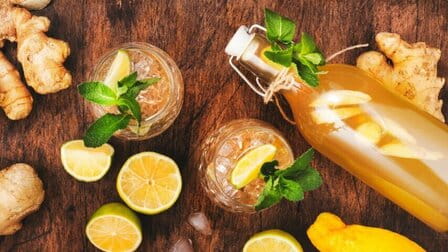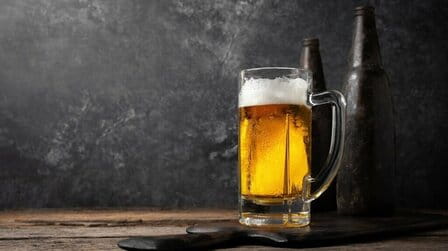Beer has been enjoyed around the world for centuries, not only for its great taste but also for its potential health benefits. In moderation, beer can be part of a healthy diet and lifestyle. Beer contains various nutrients and antioxidants that can benefit health in moderate amounts. Here is an overview of the people who can benefit most from beer:
Adults Over 21
For adults over the legal drinking age of 21, consuming beer in moderation may provide some health perks. According to the Dietary Guidelines for Americans, moderate drinking is up to 1 drink per day for women and up to 2 drinks per day for men. One drink is equivalent to a 12 oz regular beer. Beer offers vitamins, minerals, and antioxidants that may help protect heart health, boost immunity, and more.
Postmenopausal Women
Research shows that postmenopausal women who drink beer in moderation tend to have higher bone mineral density. This may be due to the silicon found in beer, which contributes to bone health. Beer also provides polyphenols that can help slow bone density loss. Consult your doctor about whether moderate beer drinking could help your bone health.
Adults With Diabetes
Studies show that moderate beer drinking can help regulate blood sugar and insulin levels, especially when consumed with meals. Beer provides antioxidants that may help prevent diabetes complications. Always talk to your doctor about how alcohol fits into your diet and diabetes management plan.
Older Adults
As a nutrient-dense beverage, beer can help older adults meet their nutritional needs. The B vitamins, antioxidants, and minerals in beer support brain health, bone density, heart health, and immunity - all important as we age. Older men and postmenopausal women, in particular, appear to benefit from moderate beer intake.
How Does Beer Positively Impact Health?
Research continues to uncover ways that beer may benefit health for certain groups of people when consumed responsibly. Here are some of the main ways beer can have a positive impact:
Provides Essential Nutrients
Unlike other alcoholic drinks, beer offers vitamins, minerals, antioxidants, and other nutrients that can positively contribute to our diet:
- B Vitamins - Beer provides B2, B6, B12, niacin, and folic acid. These B vitamins help convert food into energy and maintain healthy skin, hair, eyes, and liver.
- Silicon - Beer is a rich source of silicon, which promotes strong bones and may help prevent osteoporosis.
- Antioxidants - Hops and malt contain polyphenols and other antioxidants that combat damaging free radicals.
- Potassium - Beer contains potassium which helps maintain healthy blood pressure.
Boosts Heart Health
When consumed in moderation, beer may benefit heart health in various ways:
- Raises HDL Cholesterol - Beer's antioxidants help increase HDL or "good" cholesterol, which removes plaque from arteries.
- Reduces Inflammation - Hops have anti-inflammatory effects that may prevent artery damage.
- Improves Vascular Function - Beer improves the health of blood vessels and blood flow.
- Lowers Blood Clots - Compounds in beer work to inhibit blood clotting and decrease clot risk.
Aids Digestion
The nutrients and antioxidants in beer can support healthy digestion in a few ways:
- Increases Gastric Acid - Beer boosts the release of gastric acid, which facilitates proper digestion.
- Stimulates Appetite - Beer can act as an aperitif before a meal, encouraging appetite and gastric secretions.
- Aids Nutrient Absorption - Silicon in beer facilitates the absorption of dietary minerals.
- Promotes Gut Bacteria - Beer contains soluble fiber that feeds beneficial gut bacteria.
- Prevents Constipation - Beer has a mild laxative effect that helps maintain regularity.
Protects Brain Health
Moderate beer intake may help reduce the risk of neurodegenerative diseases and maintain brain function:
- Boosts Circulation - Beer improves blood flow to the brain.
- Provides B Vitamins - B vitamins in beer help form neurotransmitters essential for brain health.
- Contains Antioxidants - Polyphenols protect brain cells against oxidative damage.
- Reduces Inflammation - Hops lower inflammation linked to neurodegeneration.
- Enhances Cognitive Performance - Studies link moderate beer drinking with better memory, problem-solving, and processing speed.
Strengthens Bones
The silicon, nutrients, and antioxidants in beer can contribute to improved bone strength:
- Increases Bone Mineral Density - Silicon enhances collagen production for denser, stronger bones.
- Lowers Loss of Bone Mass - Beer's antioxidants may help slow age-related bone loss, especially for postmenopausal women.
- Provides Bone-Building Nutrients - Beer contains potassium, magnesium, phosphorus, and B vitamins that promote bone growth.
- Reduces Risk of Osteoporosis - Moderate beer drinkers have a lower risk of developing osteoporosis and fractures.
Potential Downsides of Beer for Health
While beer provides some benefits, it also carries risks - especially when consumed in excess. Here are some potential downsides:
- Weight Gain - Beer is relatively high in calories and carbs, so overconsumption can lead to increased belly fat and obesity.
- Liver Disease - Excessive alcohol can contribute to fatty liver disease and permanent liver damage over time.
- Addiction - Beer contains alcohol, which is addictive. Drinking too much can lead to alcohol use disorder.
- High Blood Pressure - Heavy beer drinking is associated with an increase in blood pressure.
- Nutrient Deficiencies - Over-consuming beer instead of more nutrient-dense foods can lead to deficiencies over time.
- Sleep Disruption - Drinking beer too close to bedtime can negatively impact sleep quality and lead to daytime drowsiness.
- Hormone Imbalances - Beer can raise estrogen levels, which may increase breast cancer risk for women.
It's important to drink beer in moderation as part of an overall healthy diet and lifestyle. Consult your doctor about safe alcohol intake based on your age, medical history, and any medications you take.
Healthy Alternatives to Beer
For those looking to avoid beer but still benefit from its nutrients, there are healthy non-alcoholic alternatives:
Non-Alcoholic Beers
NA beer provides the flavors of beer without alcohol. Most retain the vitamins, minerals, and antioxidants of regular beer. Enjoy up to 2 per day as part of a balanced diet.
Kombucha
This fermented tea contains probiotics, polyphenols, B vitamins, and acids that support digestion and immunity. Opt for low sugar varieties.
Kefir
Made from fermented milk, kefir offers protein, calcium, vitamins, probiotics, and yeast benefits reminiscent of beer. Choose plain, low-fat options.
Hop Tea
Made from dried hops, these caffeine-free teas provide antioxidants. Hops teas support sleep, digestion, and bone density without alcohol.
Sparkling Water with Lemon
For beer's bubbly, crisp refreshment without alcohol, try flavored sparkling waters. Add lemon for vitamin C and antioxidants.
Conclusion
When consumed mindfully and in moderation, beer can be a healthy component of the adult diet by providing essential nutrients, antioxidants, and benefits for digestion, heart health, bones, and cognition. However, excessive beer intake poses serious health risks, so responsible drinking within dietary guidelines is key. With your doctor's approval, you may find that small amounts of beer can be part of an overall eating pattern that supports well-being. But the healthiest approach is to also focus on other sound nutrition, exercise, sleep, and lifestyle practices.



















